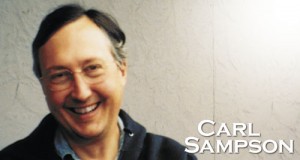 I was cleaning out my desk drawers at home the other day, and ran across one of the most powerful computers ever invented. It was an Acu-Math No. 500, also known as a slide rule. I showed it to my 20-year-old son. He looked at it as though it has fallen from the sky, an artifact of a past civilization.
I was cleaning out my desk drawers at home the other day, and ran across one of the most powerful computers ever invented. It was an Acu-Math No. 500, also known as a slide rule. I showed it to my 20-year-old son. He looked at it as though it has fallen from the sky, an artifact of a past civilization.
In a sense, he was right. The people who used slide rules are gone, most of them. And the only ones who even recognize them are the remnants of a generation of nerds that once ruled the Earth.
The slide rule, also known by the cool people as a “slipstick,” was invented in the 17th century. It used the basic properties of logarithms, exponents, to perform complex calculations that would otherwise take hours to do by hand.
A slide rule was the main tool mathematicians, engineers and others who designed complicated structures used to “do the math.”
“Do the math” would involve solving complicated equations with multiple variables. To solve them, an engineer had to isolate a variable and solve for another. He or she would then continue until they calculated the relationship between all of the variables.
This took old-fashion brain power, and a slide rule. If you were really going Buck Rogers, you also would use something high-tech like a chalkboard.
A slide rule was the light saber used by engineers to figure stuff out. In a real sense, they reached for the stars using their slide rules.
Before electronic calculators and the computers that came after them, slide rules were wielded by the best and brightest. They were used to design bridges, skyscrapers, even launched men to the moon using a unimposing fool-long gadget that ran solely on brain power. No electricity, no batteries, just intellect.
In the 21st Century, we will see and do things that our parents never even imagined. We already see robots that can build anything. Cars will soon drive themselves. Before the end of the century, we will land on Mars.
And most importantly, we are on the verge of a new energy era. In the future, we won’t burn coal or oil or even use the sun to power our lives. Another source of energy will be discovered, yes, by a nerd, that will supply all of our needs. It will be clean and limitless.
I’m a believer in the future. I’m a believer that we will get past whatever travails lie ahead and, as a civilization, learn to live together.
I’m just not sure of the timing. I’d like to say we’re on that path, but it appears we still have some things to work out with our politics and priorities.
But it will happen, sooner or later. We will learn that we are meant to get along with one another, no matter the race, or the religion, or where we live.
When that happens, I believe it will in large part be because of the brilliant men and women who came before us, who used their intellectual gifts for the good of mankind.
We will stand on the shoulders of these giants, who with their slide rules built a better world.
Carl Sampson is a freelance editor and writer.
He lives in Stayton.